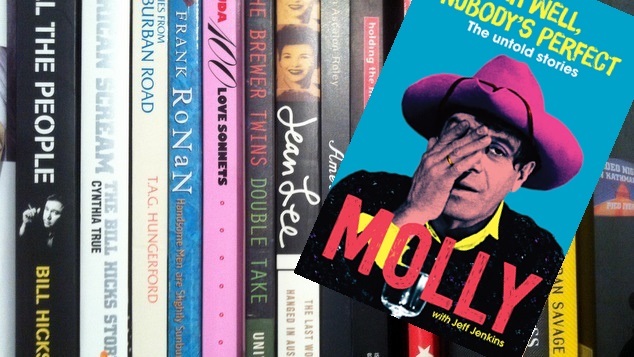
Prior to reading Ah Well, Nobody’s Perfect the only exposure I had to Molly Meldrum in my life was in my early years on Saturday nights when the family gathered around the T.V. to watch Hey Hey It’s Saturday, and Molly was a regular judge for the Red Faces segment. I don’t remember him being especially entertaining as a kid of about eight or nine; Dickie Knee poking fun at Molly always made me laugh, though.
If you have even the most remote interest in Molly Meldrum or seeing how the Australian Music industry developed in the early days of television and radio media pick up Ah Well, Nobody’s Perfect. Hell, even if you don’t I’d still say check it out. Molly’s memoirs are interspaced with those of celebrities, colleagues, and friends. On all of whom he imparted lasting impressions even if that impression was of fainting and spilling his drink on them. I can’t help but wonder how I ever thought the man who once tried to jump a fence and ended up hanging by his pants and crying in front of an EMI executive could be in anyway boring.
Molly’s memoirs read like life was a horse that was on fire, and he was riding that flaming stallion towards a chasm, but rather than turn away he kicked him harder until they were both barrelling at breakneck speed towards what was likely to be their heartbreaking but visually glorious demise. However, from what I have since learnt about his life, either Death didn’t want him or Chance favoured his plucky bravado and usually not only would he survive, but he’d do so by jumping that chasm in the most spectacular fashion one could on a horse.
Molly is credited as being “the single most important person in the Australian pop industry for 40 years”, and after reading his latest book, it isn’t hard to see why. It’s clear Molly wasn’t in it for the money; everything he did, he did because he loved the music, the personalities and those he saw that had talent, he wanted to succeed, and he put his all into seeing that happen.
Do yourself a favour and check out Ah Well, Nobody’s Perfect. It provides a voyeuristic window into the creation of an Australian icon and the birth of the Pop scene. 4 / 5 Akubras.
Aaron Angel





